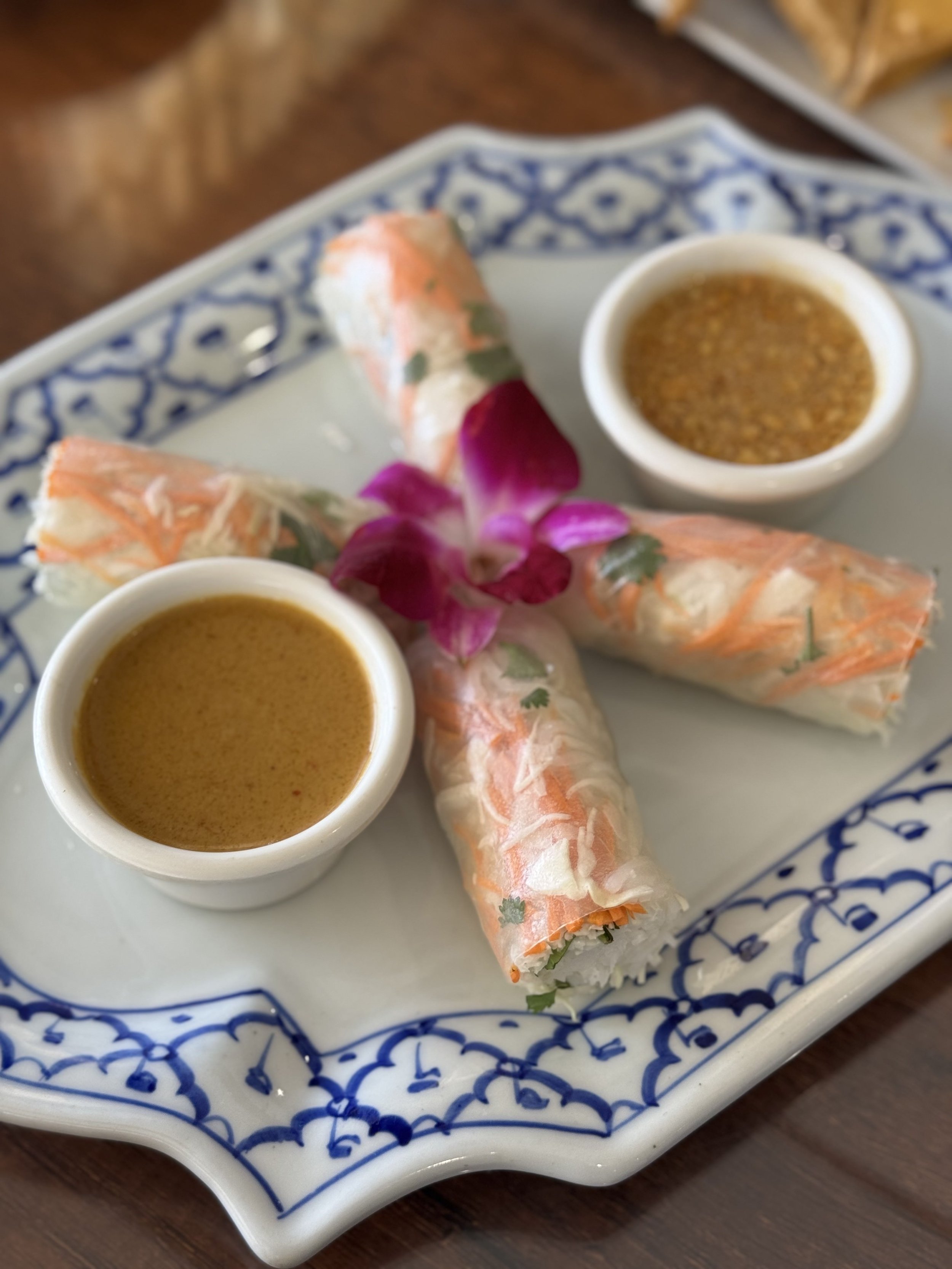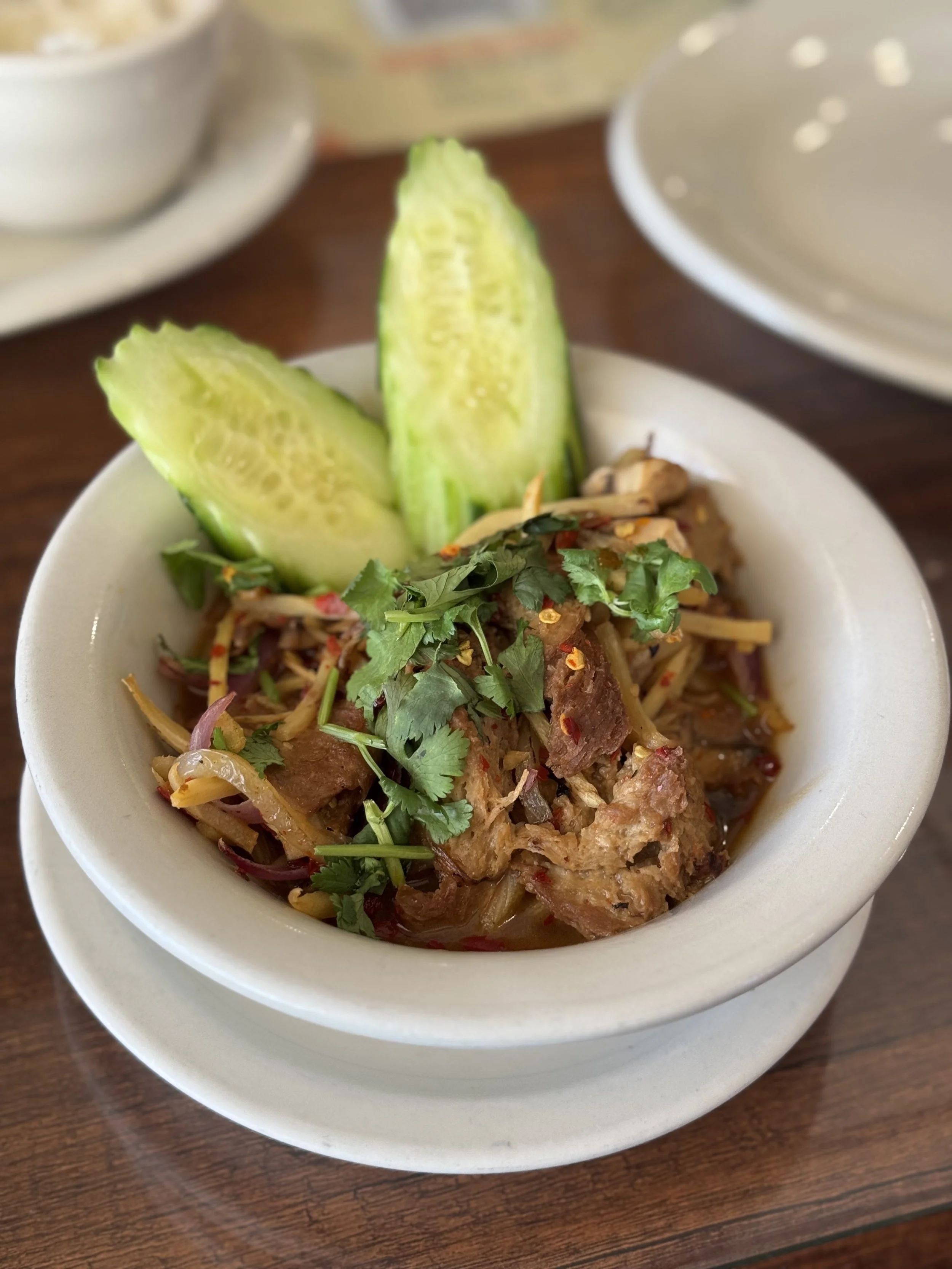No Guest Left Behind: A Restaurateur's Approach to Vegan-Friendly Hospitality
/Among the hustle and bustle of Texas’s Dallas-Fort Worth metroplex is a humble, family-owned Thai and Lao restaurant that has been at the forefront of showcasing the plant-rich roots of Thai and Laotian cuisine since its inception. For over 20 years, Thai Papaya Garden in Euless, Texas has established itself as more than just a restaurant. It’s been ahead of the curve when it comes to attracting vegan diners with its delectable variety of vegan-friendly dishes that rival their non-vegan counterparts with the bold flavors of Southeast Asian cuisine without compromise. Thai Papaya Garden recognized early on what many in the restaurant industry are now realizing: vegan options are no longer just for a niche market. Why wait for the guest to make multiple inquiries about vegan-friendly options, question the staff (who might be unfamiliar with vegan offerings), and hustle to accommodate their request with a subpar dish?
Rikida Starace, the soon-to-be owner, and daughter of Thai Papaya Garden’s founder, in a conversation with vegan hospitality consultant Shriya Swaminathan, expressed her commitment from the get-go to feature her passion for food and family’s heritage on every plate. “Vegan or not, every one of our patrons deserves a delicious meal worth their dime. Gone are the days they would settle for even safe staples like fried rice and curries when there is a world of quintessential dishes that Thai cuisine has to offer.” Owing to the popularity of their vegan menu, Thai Papaya Garden also hosts a monthly, all-vegan buffet every first Sunday of the month. This event invites diners to discover innovative vegan dishes outside of what’s already available on the a la carte menu.
By offering robust vegan options, from a vegan take on crab rangoons and orange chicken to classic favorites like Pad Thai and aromatic curries, Thai Papaya Garden is a beacon of what vegan-friendly hospitality ought to be.
A Smart Solution to Vegan Dining: Plant-Based Default Foundations
Traditional Thai and Laotian cuisines naturally incorporate an abundance of fresh vegetables, vibrant herbs, and plant-based proteins like tofu and seitan. These ingredients form the foundation of many iconic dishes we know and love. However, condiments like fish sauce, oyster sauce, and shrimp paste are also prevalent in stir-fries, dressings, and dipping sauces.
Rather than treating vegan dishes as an afterthought by simply removing flavor-imparting ingredients from existing recipes, Thai Papaya Garden builds upon the plant-forward elements already central to Southeast Asian cuisine. To Rikida, it didn’t make sense to have a separate sauce for vegans and non-vegans when the foundation of dishes could be made vegan-friendly by default. By tapping into animal-free, umami-rich ingredients like seaweed and mushrooms, the culinary team expertly recreates the deep, delectable flavors we cherish in Thai and Laotian cuisine without sacrifice.
This approach is an excellent portrayal of how offering high-quality vegan options doesn’t have to be burdensome, but instead, it’s an opportunity to showcase culinary creativity and explore the realm of simple plant-based ingredients. Not only does this approach curate a comfortable dining experience for vegans, but the staff is also spared the trouble of having to relay multiple inquiries from diners regarding unsuspecting animal-derived ingredients with the kitchen staff. The vegan-by-default approach is a clear win-win!
Building Community Through Inclusive Dining
By creating a welcoming environment where animal-free options are given equal prominence, Thai Papaya Garden strengthens its role as a community gathering place. Their thoughtfully crafted vegan menu reflects their belief that food should bring people together at the table– a space where we can put our differences aside and come together with those near and dear to us. Offering an inclusive dining experience should be at the forefront of any hospitality business’s ethos. By attracting vegan diners rather than accommodating them as a mere afterthought, restaurants are better positioned to be a default destination for large parties of diners with even one vegan in the group. In addition to being beneficial from a hospitality standpoint, it's a smart move from a business perspective as it welcomes a new demographic of repeat diners who know that the vegans in the group can equally partake.
Rikida’s approach to vegan-friendly hospitality is a testament to how if you put deliberate thought and intention into your vegan menu, it WILL succeed. As she emphatically says, ”You oughta serve personality on the plate, because anything less than, is a disservice to culinary culture and of course, your customers.”
Thai Papaya Garden continues to serve the Euless community with authentic Thai and Lao cuisine that welcomes all diners, proving that traditional family recipes and vegan-friendly fare can successfully coexist to create memorable dining experiences for everyone.
Is your restaurant ready to create an inclusive experience for vegan customers? Start with quick menu support or schedule a call to explore further.
This article was written by Shriya Swaminathan, U.S. based Vegan Hospitality Consultant






